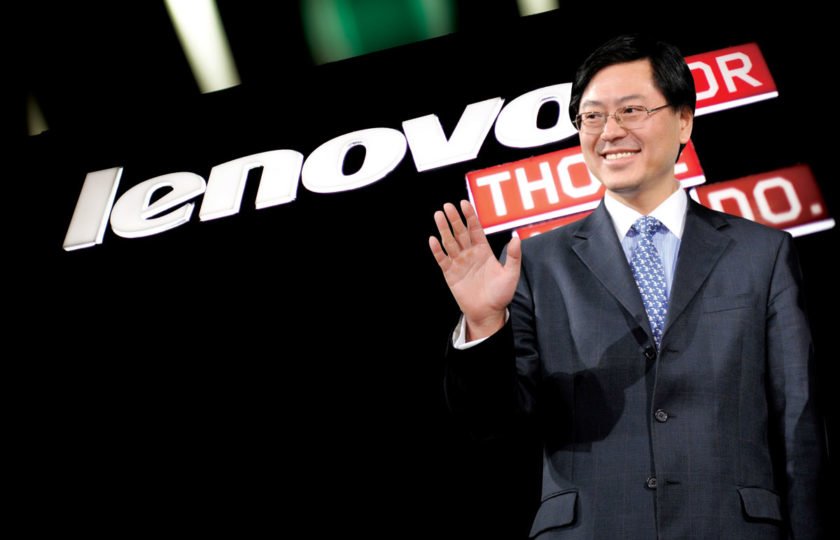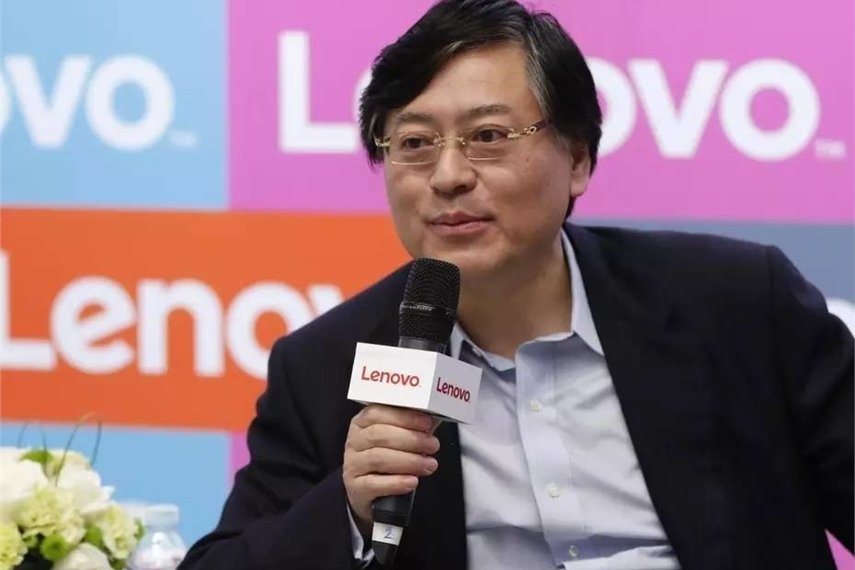Trade tensions between the U.S. and China have been escalating since March. After Washington imposed import tariffs on steel and aluminum, President Trump slapped additional levies on up to $150 worth of Chinese goods in order to punish Beijing for intellectual property theft.
Economists fear that the trade war could seriously hurt companies that depend on global commerce, and now tech giant Lenovo has issued a warning that it may have to increase prices if U.S. and China don’t resolve their differences.

CEO and chairman of Lenovo Group, Yang Yuanqing, warned last week that if the trade war between China and U.S. drags on, the firm will have no choice but to raise prices
Trade War Threatens Lenovo’s Growth
CEO and chairman of Lenovo Group, Yang Yuanqing, warned last week that if the trade war between China and U.S. drags on, the Beijing- based computer firm will have no choice but to raise the prices in the future if the governments decide to apply tariffs to the computer and mobile industry, which has largely remained untouched so far.
Last week, while announcing Lenovo’s first quarter results, Yang said that the ongoing trade war could have a huge impact on consumers’ interest. So far, the company has managed to beat the analyst estimates and return a profit in the first quarter of its fiscal year. However, Yang is concerned that his firm may not be able to maintain this profitability for long if the technology sector is targeted next in the U.S.-China trade war.
The Hong Kong-listed company reported a $77 million profit in its quarter ended in June, a massive leap from its position during the same period last year when it reported losses. Lenovo’s shares grew 6.1 per cent on Thursday after the company revealed its quarterly earnings.
Majority of Lenovo’s revenue comes from its North American market. The company even acquired IBM’s PC division in 2005 grow sales in the U.S. China, on the other hand, accounts for just quarter of the computer-maker’s sales.
Leading in North American Market
So far, Lenovo hasn’t faced the same suspicion and scrutiny that has led to the downfall of some of the biggest Chinese telecommunications companies like ZTE and Huawei. This is one of the biggest reasons why it has been successful in achieving profitability this year.
In its most recent quarter, Lenovo exported over 13.6 million computers overseas, almost the same amount as HP, according to research firm, Gartner. Lenovo is currently leading with a market share of 21.9 per cent, closely followed by its competitors Dell, Apple and Acer.
In 2014, the Beijing-based company acquired Motorola which led to its entry in the cellphone industry. Lenovo Group announced last week that its handset sales have soared by 91.8 per cent in North America in the first quarter of 2018. This is quite an impressive feat considering the fact that the overall cellphone market has declined by 12.7 per cent in North America this year.

In its most recent quarter, Lenovo exported over 13.6 million computers overseas, almost the same amount as HP, according to research firm, Gartner
Tit-for-Tat
In July, China and U.S. started taking turns at imposing 25 per cent trade tariffs on each other’s goods. This tit-for-tat has now materialized into a full-fledged trade war in which businesses from both sides have been compromised, including China’s meat importers who are frantically looking for other suppliers after U.S.-made beef became 25 per cent more expensive.
The soybean farmers in U.S. are also making losses after China, which is the biggest importer of soybeans, started turning elsewhere for supplies.
Last Thursday, China’s Commerce Ministry announced that it would create a delegation under the Wang Shouwen, the vice-minister of commerce to meet with U.S. Treasury Secretary about the current trade issues between U.S. and China.
Yang hopes that there can be a way to reach a resolution between the two governments before the trade war reaches the technology industry. Settling the conflict will be helpful both for the company and the world economy, he added. Yang also says that his company’s profitability has been hurt by the strengthening U.S. dollar, since the currency denominates almost 70 per cent of its costs.
Yang says that Lenovo will continue to export its smartphones under Motorola to other major counties and Latin America where sales have grown massively over the past year. Lenovo plans to sell its own cellphone brand in China and India.










